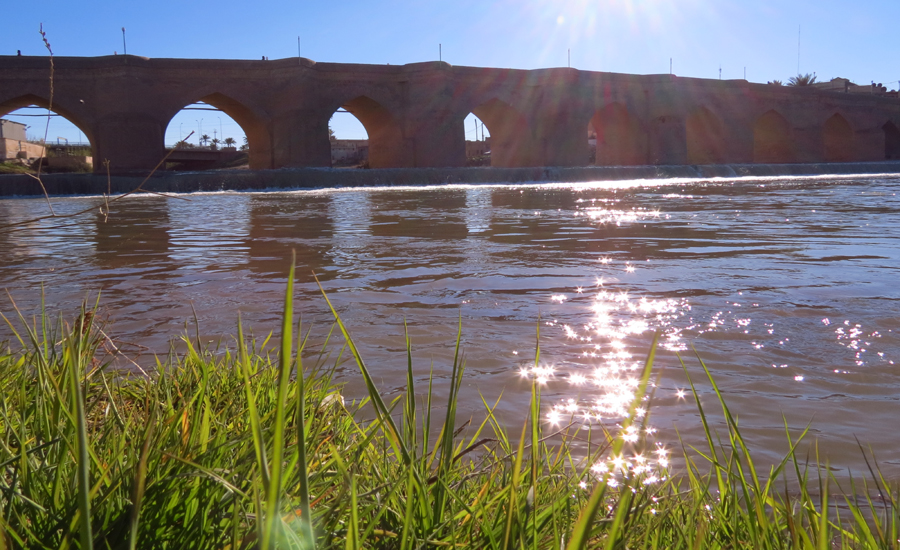The residents of Khanaqin, northeast of Baghdad, are not getting enough drinking water, partly due to the decrease in the water level of the Alwand Dam and the withdrawal of the Sirwan River, which are the two main sources of water for the Khanaqin project.
The problem of drinking water shortage in Khanaqin has started with the arrival of the summer season and citizens are expected to face more problems with the arrival of the summer season.
The 90,000 residents of the majority Kurdish town of Khanqin district of Diyala province consume 2,000 cube meters m3 in an hour while the current capacity of the project is 800 m3.
Suad Ibrahim, a resident of Arkawazi neighborhood in Khanaqin, said, “We have been buying water for two months at 15,000 dinars (USD10) per tanker.”
We have been buying water for two months at 15,000 dinars per tanker
"I hope the government will take our concerns into consideration. This year has been the worst year of water shortages," said Suad, who has six members in her family.
In general, there are neighborhoods that receive water for few hours in 10 days or more, while some neighborhoods are better off.
Khanaqin relies on the Khanaqin Water Project for drinking water in addition to nine refineries and 27 irrigation wells. The project was built in 1968 when the population of the district was 6,000 people only.
The main feeders of Khanaqin water project are rivers of Alwand and Sirwan, both their level of water is down due to poor rainfall in winter and the dams built its neighbor Iran.
“Whenever we run out of water, we buy another tanker... We used to use water from irrigation wells during Saddam Hussein's regime, but the water is dirty and not suitable for drinking,” said Yousef Mohammed, a resident of Khanaqin's Bakhtiari neighborhood.
Hassan Aghajan, director of the Khanaqin Water Office, told Kirkuk Now that two main problems are causing the water shortage in Khanaqin: the decline of water level in Alwand river and the blockage of Sirwan river flow to Khanaqin.
"Our water sources have dried up, water does not reach the Khanaqin water project, except for the Khanaqin water project and the other nine water refineries," he added.
Our water sources have dried up and water does not reach the Khanaqin water project
Khanaqin relies on groundwater for drinking water, but due to the poor rainfall in the last few years, groundwater has also decreased.
The local administration of Khanaqin met with Garmian administration of Sulaymaniyah Northern Province last week and demanded the release of Sirwan River to supply water to Khanaqin refineries and water project.
"They are expecting to pump water from this week, although it will not solve the water shortage problem, but it is better," Aghajan said.
In 2014, the Iraqi government agreed to build a major drinking water project for Khanaqin, although a company took over the implementation of the project, but due to the war against the Islamic State of Iraq and Syria ISIS, the work was stopped in the middle of that year.
"We have requested the construction of the project again in 2021. They were supposed to start again this year, but there are no updates yet," Aghajan said.
According to Hassan Aghajan, the biggest problem in Khanaqin is the lack of groundwater for their refineries.
Earlier, KirkukNow reported that the Khanaqin water project produces 800 cubic meters of water per hour, while the residents of Khanaqin need 2,000 cubic meters of water during the same period.
"The Khanaqin water project and its 27 irrigation wells are still unable to meet the needs of the people of Khanaqin," he said.
He urged neighborhoods with better access to water to hold on to it and use it sparingly.
In May 2021, a report by KirkukNow found out that water storage at Alwand Dam was between 15-18 million m3 while two years ago it was 39 m3. Water flow into Alwand has remarkably dropped down. Only 2-3 m3 in a second flows into the dam while it was gathering 23m3 in 2020.





